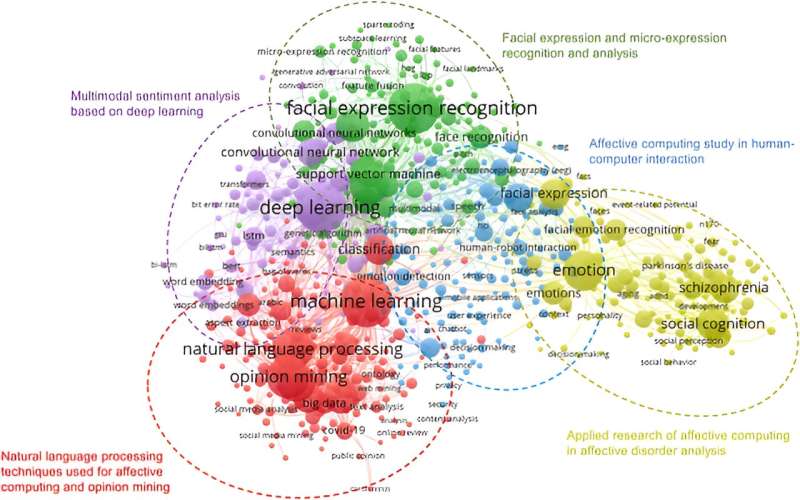
Imagine a world where your smartphone can detect your mood just by the way you type a message or the tone of your voice. Picture a car that adjusts its music playlist based on your stress levels during rush hour traffic. These scenarios are not just futuristic fantasies.
They are glimpses into the rapidly evolving field of affective computing. Affective computing is a multidisciplinary field integrating computer science, engineering, psychology, neuroscience, and other related disciplines. A new and comprehensive review on affective computing was published in Intelligent Computing. It outlines recent advancements, challenges, and future trends.
Affective computing enables machines to perceive, recognize, understand, and respond to human emotions. It has various applications across different sectors, such as education, health care, business services, and the integration of science and art. Emotional intelligence plays a significant role in human-machine interactions, and affective computing has the potential to enhance these interactions significantly.
According to the review, research in this field covers five main aspects: basic theory of emotion, collection of emotional signals, sentiment analysis, multimodal fusion, and generation and expression of emotions.
Researchers performed a statistical analysis using a bibliometric method to improve the overall understanding of the theory, technical methods, and applications of affective computing. Bibliometrics applies quantitative methods such as mathematics and statistics to the literature of a scientific or other field and processes statistical data based on information science theory.
According to the data collected in the bibliometric study, the number of articles published in the field of affective computing has grown considerably since 1997, with a steady increase in publications until 2009, followed by rapid growth from 2010 to 2019 due to advancements in deep learning.
However, post-2019, the growth has plateaued, possibly due to a slowdown in deep learning innovation and the impact of the COVID-19 pandemic on academia. China is leading the world in publication volume, followed by the United States, India, the UK, and Germany. The field's research is published across a wide range of journals, with journals such as IEEE Transactions on Affective Computing, Expert Systems with Applications and Knowledge-Based Systems being favored by scholars in the field of affective computing.
Affective computing research spans disciplines, including computer science, engineering, neurosciences, and other disciplines. The main research themes in this field, as identified through keyword frequency analysis, are natural language processing, facial expression recognition, human-computer interaction, affective disorder analysis, and multimodal emotion analysis.
Top institutions in this field include Nanyang Technological University, Imperial College London, and Tsinghua University. International collaborations are widespread, particularly between China and the US. The field's scholars are primarily concentrated in Asia and North America.
More information: Guanxiong Pei et al, Affective Computing: Recent Advances, Challenges, and Future Trends, Intelligent Computing (2023). DOI: 10.34133/icomputing.0076
Citation: Affective computing: Connecting computing with human emotions for empathetic AI (2024, February 26) retrieved 26 February 2024 from https://techxplore.com/news/2024-02-affective-human-emotions-empathetic-ai.html
This document is subject to copyright. Apart from any fair dealing for the purpose of private study or research, no part may be reproduced without the written permission. The content is provided for information purposes only.
